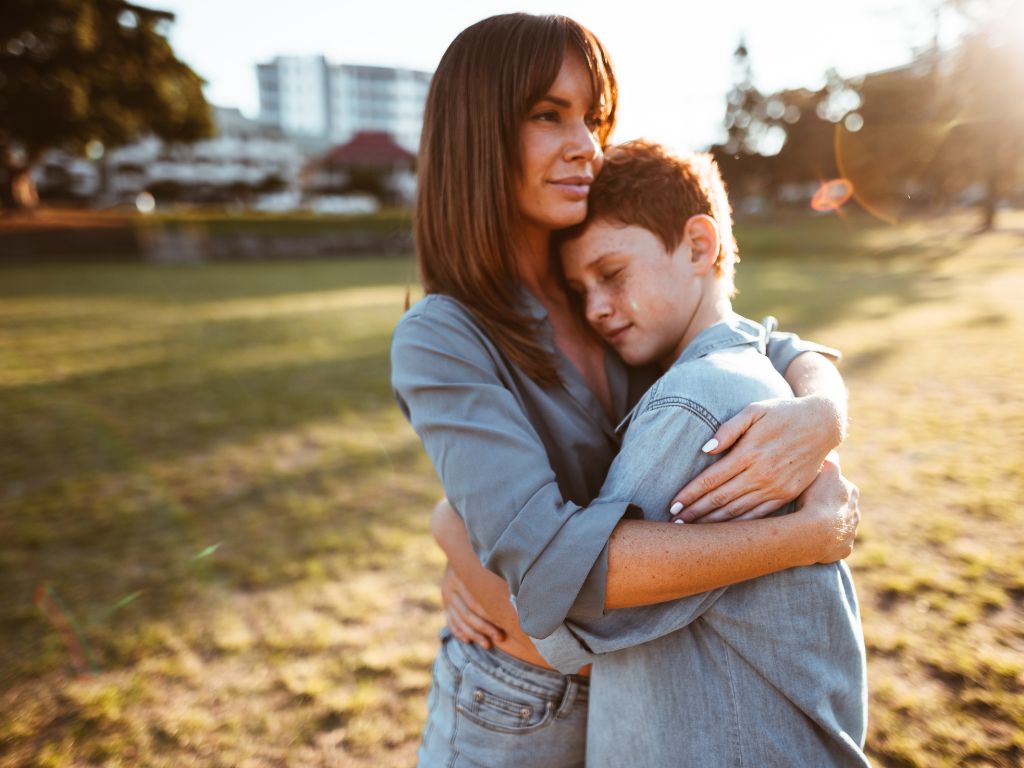How to Support Families Experiencing Domestic Violence

In Colorado, domestic violence is defined as a pattern of abusive behavior used by one person to gain or maintain power and control over a current or former intimate partner.
For people who are the target of domestic violence, the challenges can feel overwhelming – fear for their lives, isolation, financial challenges, immigration concerns, and heightened anxiety to name just a few. The situation becomes even more complex when children are involved.
How Domestic Violence Affects Children
Children and teens can experience domestic violence in different ways. Some see or hear the abuse directly. Others can be emotionally and physically abused when a crisis escalates. And many children and youth witness the aftermath of an abusive incident – broken objects, caregiver injuries or tense interactions at home.
The exposure to domestic abuse can be traumatic for young people and can lead to short- and long-term challenges. According to the Casey Family Programs, some of the negative impacts children and youth may encounter include:
- Behavioral, social, and emotional challenges, including depression, low self-esteem, anxiety, anger and inability to sustain positive relationships.
- Cognitive challenges, including diminished problem-solving and conflict resolution skills, developmental delays, academic difficulties and challenges with concentration and task completion.
- Long-term challenges, including higher rates of substance use, chronic mental health issues, trauma symptoms, delinquency and increased use of violence.
Why Seeking Professional Help Matters
If you are a parent or caregiver experiencing domestic violence, you may already be doing everything possible to protect your kids while trying to manage the situation yourself. If you are a trusted friend or family member, you may wonder how to help.
The most important steps are to know that specialized support is available and that asking for help is never something to be ashamed of.
Community-based resources can provide you with free, confidential services such as:
- 24/7 crisis line,
- Advocacy and safety planning,
- Counseling and support groups,
- Shelter and housing resources,
- Emergency aid, financial and legal support.
Visit the Violence Free Colorado website to learn what resources are available in your area or contact the National Domestic Violence Hotline at 800-799-SAFE or visit thehotline.org to connect to advocates who can provide confidential support.
Survivors of domestic violence with kids can also access Colorado’s child support website, part of Colorado’s Child Support Services Program, which helps ensure kids receive the financial support they need to thrive. To protect visitors experiencing domestic abuse, the site includes a quick exit button that can quickly and safely exit to a Google search page.
If you are concerned about a child or youth experiencing domestic abuse, call the Colorado Child Abuse and Neglect Hotline at 844-CO-4-Kids (844-264-5437). Trained professionals are available 24/7 to take your call.
Check In on Your Relationship
All relationships face challenges, but healthy ones should feel safe, supported and respectful. If something feels unbalanced or if loved ones express concern about your behavior in a relationship, it is okay to check in and seek guidance.
The A Call For Change is a free, anonymous and confidential intimate partner abuse prevention helpline that serves adults and teens who are questioning if they have controlled or intimidated their partner. Friends and families concerned that someone they know may be using abusive behavior can also contact the helpline and seek support and advice.
How You Can Support People Experiencing Domestic Abuse Who Have Kids
Every situation is unique and safety may look different for each person and their kids. Still, there are meaningful ways to support people who are the target of abuse:
- Listen and respect their choices: If someone discloses that they’re experiencing abuse, asking them how you can support them in an open and non-judgmental way is supportive. On the other hand, suggesting that someone leave their partner, criticizing their choices or confronting the person causing them harm can escalate the abuse and discourage them from seeking further support.
- Help with Child Care: Babysitting or offering a safe space for kids can give caregivers much-needed relief and children a sense of security.
- Provide Safe Storage of Important Items: In many cases, people experiencing abuse face increased danger when they leave the person who is causing them harm, potentially putting their lives at risk. Loved ones may offer to gradually store clothes, money and important documents for the survivor.
- Be Their Safe Place in an Emergency: Survivors may need temporary shelter, transportation or childcare. Offering these supports, or connecting the individual with a local advocacy organization, can provide a lifeline during a crisis.
Moving Toward Safety and Healing
Through our ongoing commitment to prevention, survivor support and offender treatment, we can end domestic violence. By standing with survivors, all of us can help create pathways to safety and healing where people experiencing abuse can access resources, rebuild trust, experience love without fear and ultimately thrive.
With Survivors and Their Children, Always.
More Posts







